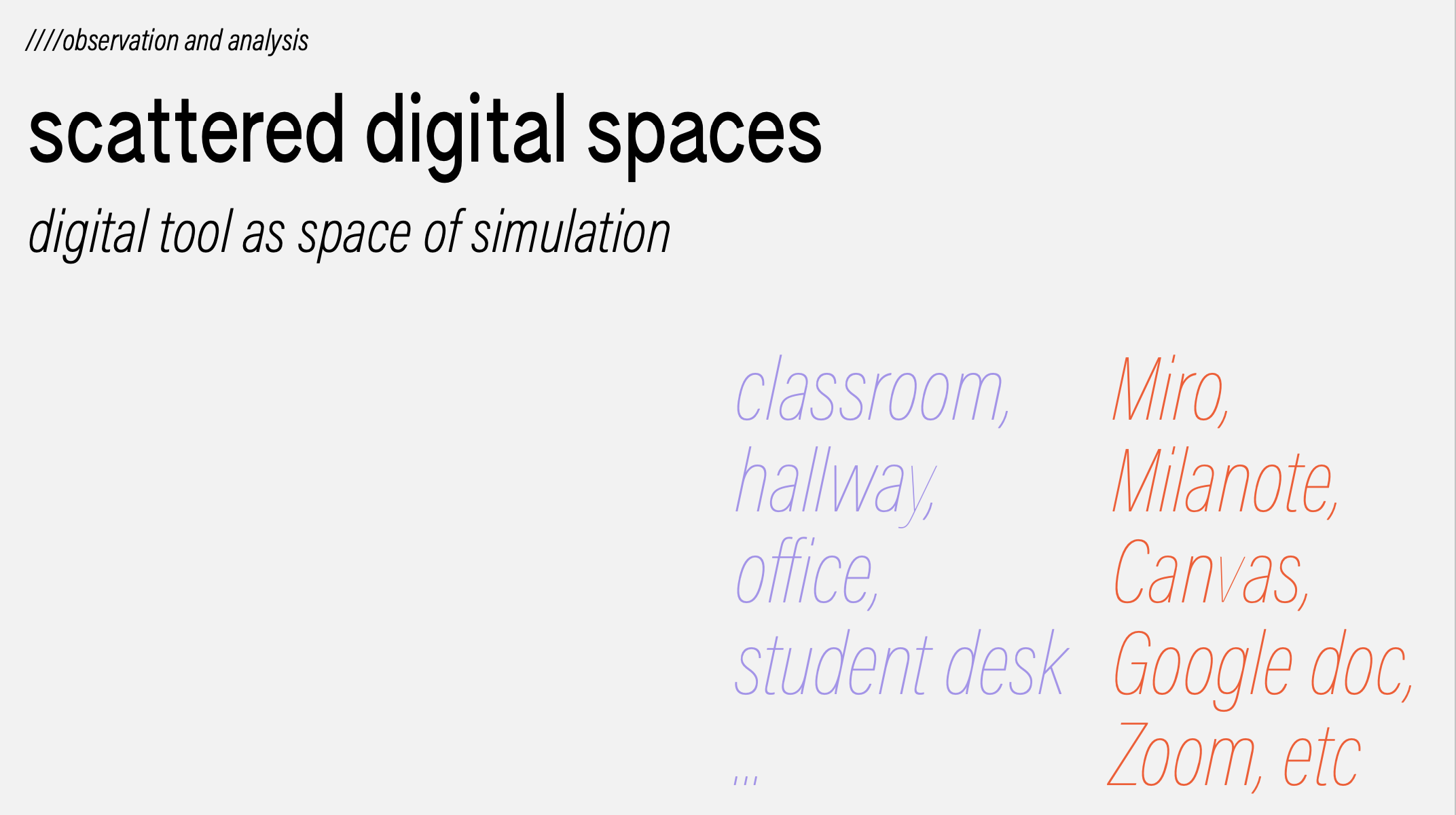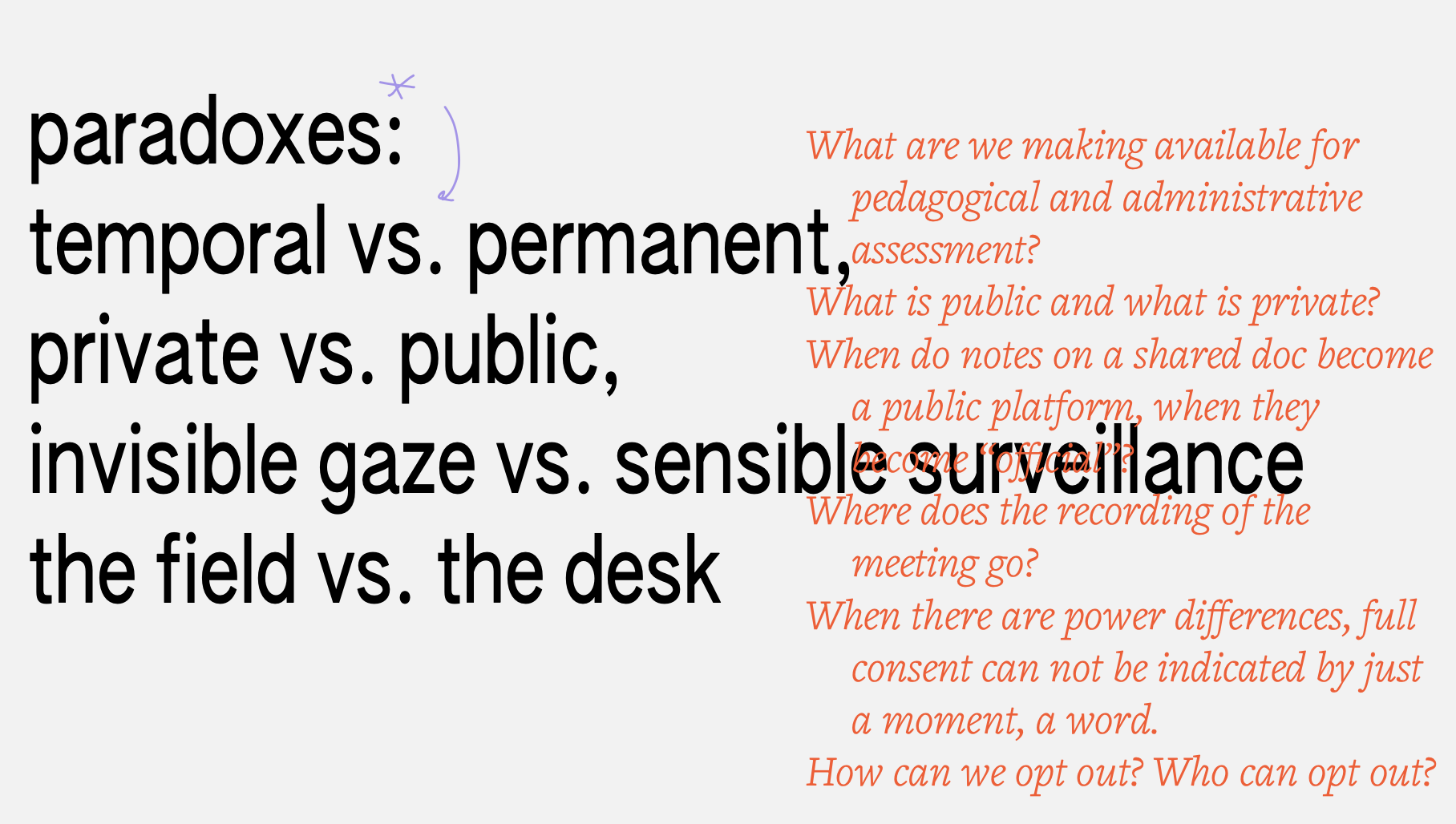Mapping Critique in Digital Space
2020–2022


tools for questioning the implications of digital tools in the re-turned hybrid design education spaces
Derived from autoethnographic observations, this paper reflects on the possibilities, limitations, and implications of digital tools present in between digital, physical, and hybrid teaching. The mapping initiated from a period of fully remote learning and immense reliance on technological structures to share and discuss creative work. Serving not as how-tos but as tools for questioning, the map deconstructs the virtual learning environment prescribed, strategies employed, and conventions formed in digital classrooms. The project asks what conditions the choreography of teaching and learning: When the digital classroom function simultaneously as a space of simulation, space of access and communication, and documentation and representation, what are inherited from the tools and platforms, such as the idea of professionalism? How to frame critique as a social process, when educators and students are navigating the spectrum of private and public, various senses of temporalities and ownership, and issues of accommodation and consent? After returning to in-person learning for one academic year, digital space is still used as an extension of physical classrooms. Digital tools stay in pedagogical practice, and many questions remain relevant. What and how are we making visible or invisible for pedagogical and administrative assessment? What additional learning opportunities does the inclusion of digital platform creates, such as integrating platform literacy, consciousness about viewing condition and representation of work, and creative and subversive use of technology? This paper presents questions and provocations to chart a discussion on how to continue negotiating and situating pedagogical practice in relation to digital tools.
Li, Xinyi, Gaia Scagnetti. “Mapping the Critique in Digital Space” in Mid-America College Art Association panel “Digital Tools in Classroom.”Paper presented at the College Art Association (CAA) Annual Conference, Online, February 16, 2023
Li, Xinyi, Gaia Scagnetti. “Mapping the Critique in Digital Space” in Mid-America College Art Association panel “Digital Tools in Classroom.”Paper presented at the College Art Association (CAA) Annual Conference, Online, February 16, 2023